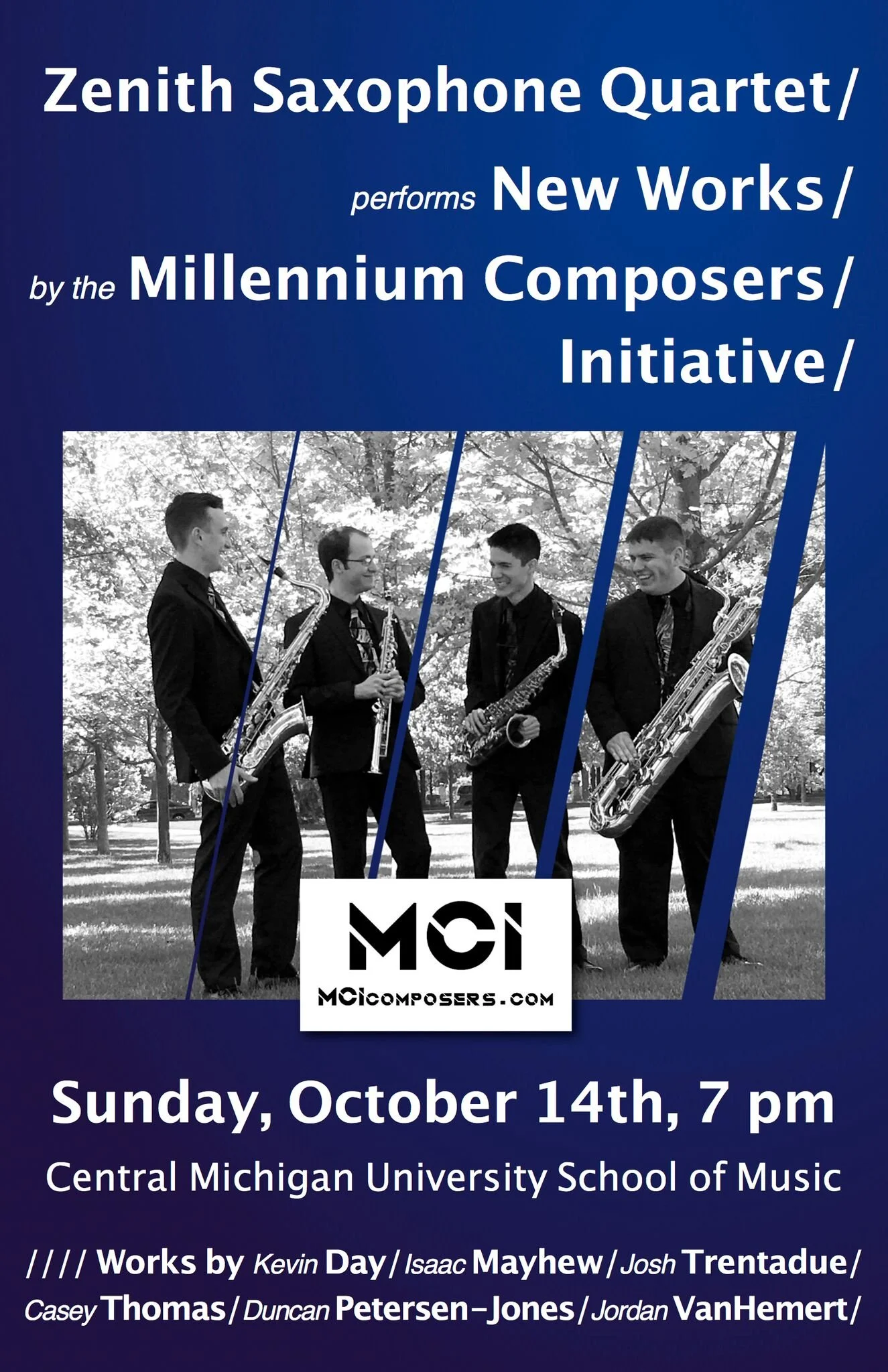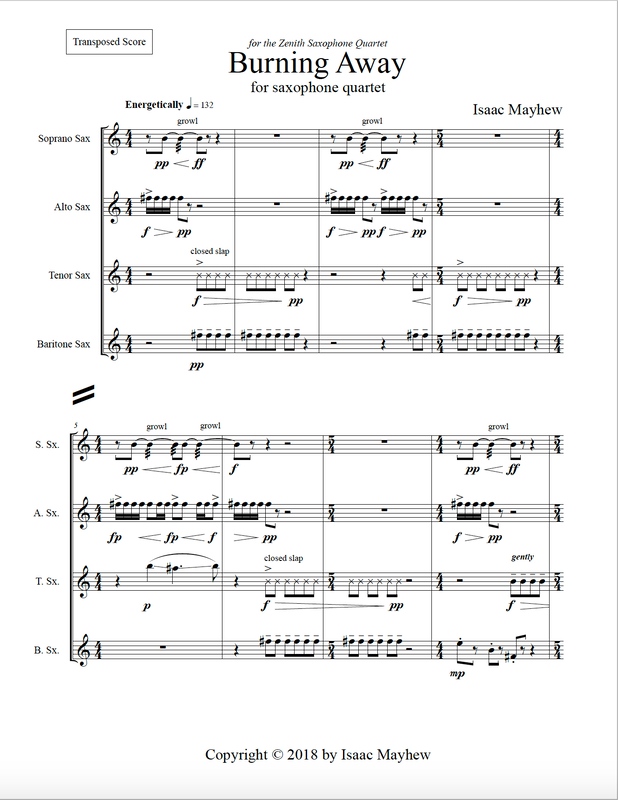COMPOSER SPOTLIGHT: ISAAC MAYHEW, "BURNING AWAY"
This academic year, the Millennium Composers Initiative will be co-hosting two collaborative concerts with two different chamber groups. The members of the initiative are given the opportunity to compose a brand-new work for the performers and participate in rehearsals leading up to the concert performance.
The first concert of the year consists of entirely new music performed by the much-lauded Zenith Saxophone Quartet, including multiple world premieres of music by MCI composers. The event will take place on Sunday, October 14th at Chamichian Recital Hall in Mount Pleasant, Michigan. The concert is generously co-hosted by the Zenith Saxophone Quartet and the Central Michigan University School of Music.
Starting this week, we will be introducing the music that will be featured on the program, including some insight by our composers as to how each of the pieces came to be. First up is Burning Away by Isaac Mayhew, a brand-new piece for saxophone quartet that is as personal as it is emotional.
Describe your inspiration for composing the piece. What is its overall conception?
Burning Away was written in the year following the death of my girlfriend Laura and deals with my experiences of grief and loss, but also my slow, winding, and still ongoing, journey towards acceptance and peace. The piece is mostly abstract, although it can basically be divided into five sections which are based loosely on the five stages of grief (denial, anger, bargaining, depression, and acceptance). The sections are tightly intertwined, however, and I did intend for any specific section to be associated with one particular stage of grief. The five stages do not occur in any specific order - they are very non-linear, as has been my experience, and I wanted this work to reflect that.
What are some of the goals you strove to accomplish?
I mostly sought to find ways to deal with contrasting material in various ways, and I tried to do this by exploring paradoxes - finding dissonances that can be made beautiful and consonances that can cause pain. My experience has been that pain, strength, beauty, and love have a strange and complex relationship, and I tried to communicate that through this work.
What are some of the challenges you faced?
This is my first work for saxophone quartet! So there was a bit of a learning curve with regard to making that ensemble work for me. The saxophone is such an instrument with a wide range of capabilities that I was always not sure I was using this ensemble to its full potential. Saxophones are especially good at blending, particularly when the players have experience playing together, so I was able to evoke an almost choral timbre in some places in the piece. At the same time, I wanted them to be harsh in other places, so finding ways to transition smoothly, or abruptly, was definitely a challenge.
Is there anything specific you'd like listeners to look out for in your piece?
There is a pretty major quotation at the end of the work. I used the chorale from the Christian hymn The Old One-Hundredth as the source material for the ending of this piece. This particular hymn has special significance to me, as it evokes powerful feelings of light and grace. I have used this quotation in another piece of mine, a piano solo entitled On the Nature of Self which is also about personal struggles that I have encountered.
What do you hope audiences will take away upon hearing your piece?
Typically, I try to keep an open mind about the audience experience. This piece is very much about me grappling with my own dealings of loss and recovery, and so I guess I would hope that listeners might be able to relate that to some experiences in their own lives. I have no lesson to teach anybody, but I would hope that this expression of my own struggles might provide some solidarity for anyone who happens to find themselves in a similar, or not so similar, situation. Whatever the listeners take away from this performance, I am incredibly grateful to them for listening to this very personal and emotionally significant account.


